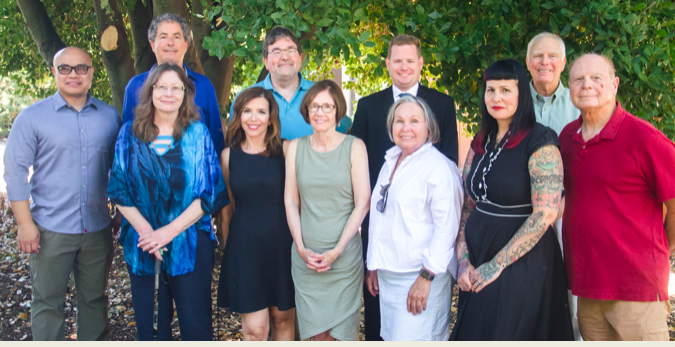On March 18, faculty members from the Criminology & Criminal Justice Studies depart-
ment took to the Academic Senate’s weekly meeting to address their case with the Dean
of the School of Social Sciences, Dr. Troi Carleton. Multiple professors within the department
signed and filed a grievance with the University, stating that Carleton overstepped her role as
dean, an accusation which she denies.
In early February, Dr. Emily Asencio, a professor at SSU, was removed from her position
as Internship Coordinator for the CCJS department. Carleton claims this decision was due to
a “personnel matter”. Carleton then took over the position herself and opened up a new section
of CCJS 499, the department’s internship course, with herself as the instructor.
“The filing of a grievance should always be the last resort. However, the CCJS faculty
feel that our complaints have fallen on deaf ears,” said Dr. Napoleon Reyes in an email to the
STAR, “The Dean continues to act as CCJS Internship Coordinator and still serves as the
class instructor of the second section of CCJS 499 despite the fact that she is not a member of
the CCJS Faculty and is not qualified to teach any CCJS class.”
The Academic Senate came to a resolution after the March 18 meeting stating that, “…
the SSU Academic Senate opposes all acts of administrative encroachment into curricular
matters.”
However, the CCJS department feels like just opposing the Dean’s actions isn’t enough.
“A strong statement from the SSU Academic Senate is needed in a case like this because
administrative encroachment into curricular matters is a very serious violation of CSU and
SSU policies,” Reyes said.
The Curriculum Committee of the School of Social Sciences also issued their resolutions
in agreement with the CCJS department, condemning Carleton and calling for President Judy
Sakaki to reverse the Dean’s actions.
“This is very significant because the Curriculum Committee of the School of Social
Sciences is composed of all department chairs and program coordinators from the School of
Social Sciences, and they called out their own school dean for violating CSU and SSU policies
and encroaching into curricular matters,” Reyes said.
Even with the backing of the Curriculum Committee, the CCJS department is still strug-
gling to reach a solution with the University. During the March 18 Academic Senate meeting,
Interim Provost Karen Moranski made a claim saying that the University offered to settle with
Asencio and the CCJS department, but the department denied the terms.
Reyes says that is not at all what occurred and detailed the events leading up to this claim.
The CCJS department did in fact agree to settle with the University but under signifi-
cantly different terms than those that were finalized. The department sent a list of 6 proposals
in which Moranski and the University had initially agreed to, but when the settlement was
returned to Reyes and Asencio, it was not the same list they had sent out.
“My decisions continue to support the students. And the University President, likewise,
puts students first. Student voices were left off the resolution that CCJS wanted the Senate to
pass,” Carleton said.
Some of these requests include removing Dean Carleton as internship coordinator and
instructor of CCJS 499, restoring Asencio’s position as internship coordinator, and a request
that Carleton refrain from interfering with CCJS curricular matters. However, the only resolu-
tion passed was the removal of Carleton as instructor, with Asencio taking her place.
“We feel that the SSU Academic Senate should have issued a stronger resolution by in-
cluding the rationale for the resolution, condemning what the Dean of the School of Social
Sciences did, and asking the University President to reverse the Dean’s actions,” Reyes said.
Reyes also said that these types of issues are not new to SSU, as other departments and
faculty have experienced similar challenges.
“Unfortunately, the issues faced by Professor Asencio and the other CCJS faculty mem-
bers are not unique to the CCJS Department,” Reyes said, “Many SSU faculty members from
other academic departments have been dealing with similar issues for a long time.
Most recently, the Sonoma Chapter of the California Faculty Association (CFA) filed a
chapter grievance against the University as a result of faculty members being forced to teach
larger classes or extra sections, which they claimed directly violated CSU and SSU policies.
“It is important that SSU faculty members and academic departments challenge these
unlawful actions by University administrators. Otherwise, they become the status quo.
Silence is complicity,” said Reyes.
As the situation develops, administrators can only hope that the future of the department
will remain bright, and that the students will have an optimal learning experience.
“CCJS students are among the most impressive students I’ve met and I continue to be
inspired by their resilience, tenacity, passion, and curiosity,” Carleton said, “In the end, making
sure they are supported by their faculty and administrators is what is important.”



































